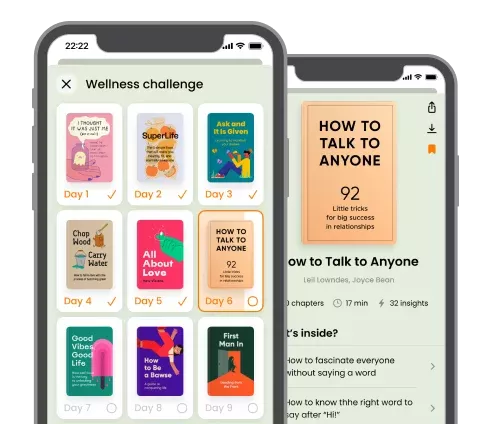13 Best Books About Socialism
Discover a collection of insightful books about socialism, exploring its principles, history, and impact on society. Expand your knowledge today!
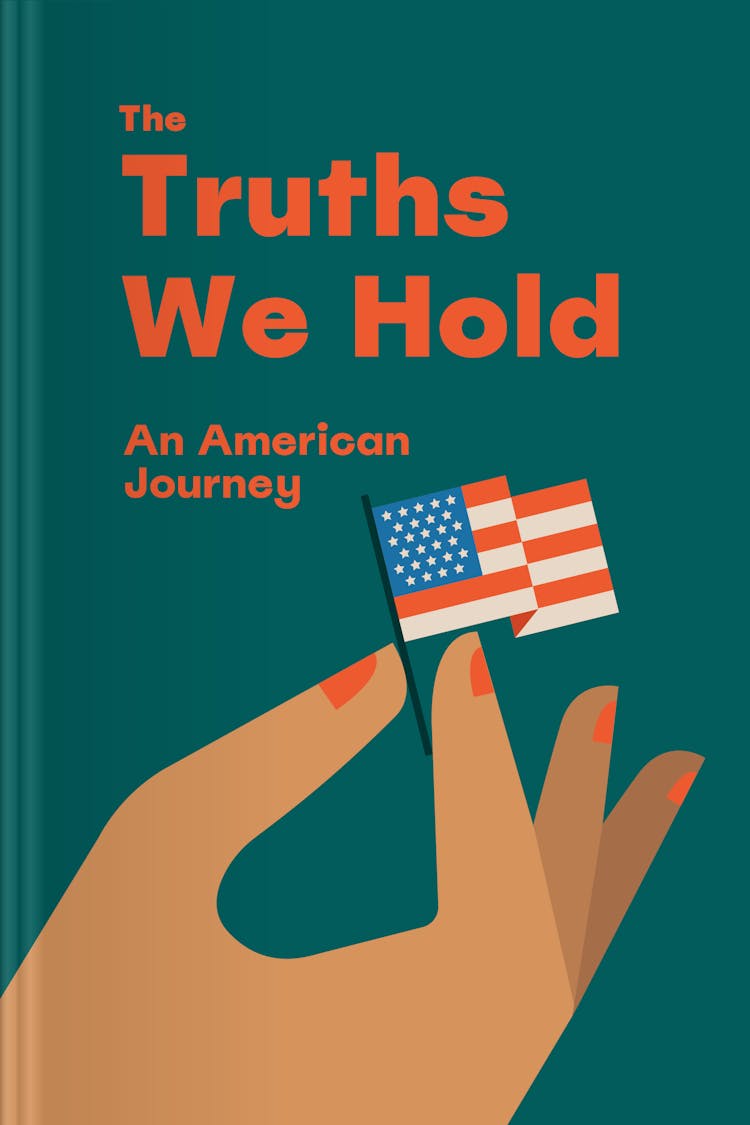 1
1The Truths We Hold
by Kamala Harris
What is The Truths We Hold about?
"The Truths We Hold: An American Journey" is a captivating memoir that takes readers on a transformative journey through the life and experiences of its author. With a focus on justice, equality, and the power of community, this book offers a powerful exploration of Kamala Harris's personal and political journey, shedding light on her values, beliefs, and the truths she holds dear. It is an inspiring and thought-provoking read that delves into the challenges and triumphs of an extraordinary American leader.
Who should read The Truths We Hold
American citizens seeking insight into Kamala Harris's political journey.
Young women aspiring to break barriers in politics and leadership.
Individuals interested in understanding the challenges of modern American democracy.
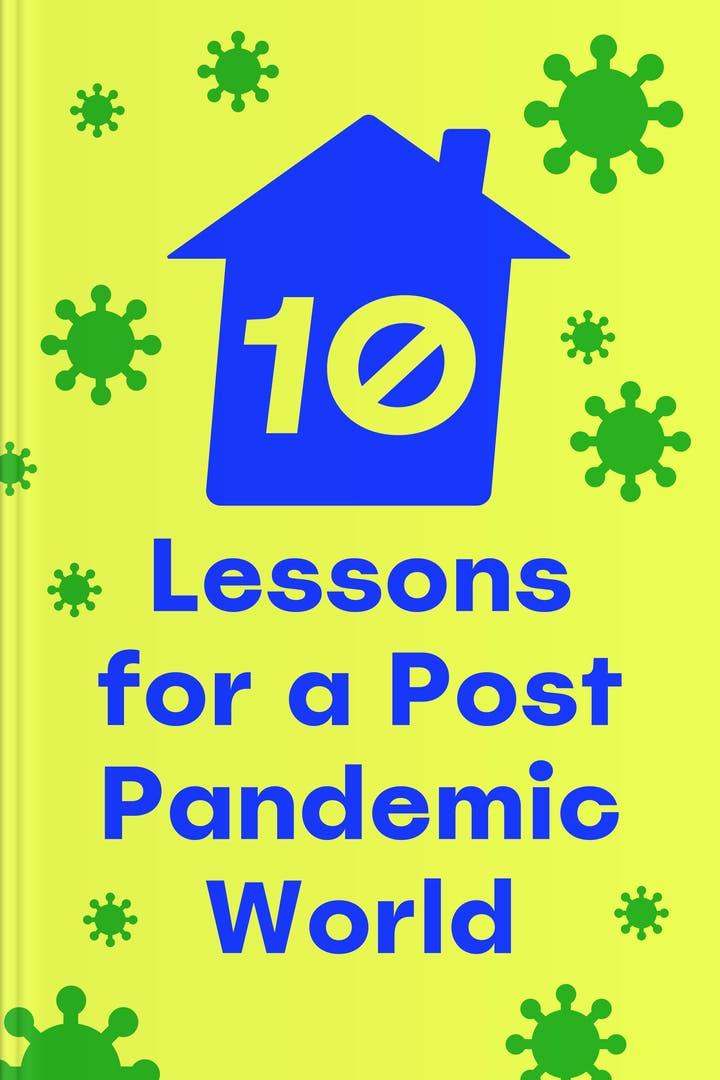 2
2Ten Lessons for a Post-Pandemic World
by Fareed Zakaria
What is Ten Lessons for a Post-Pandemic World about?
In this thought-provoking book, a renowned author and journalist offers invaluable insights into the challenges and opportunities that lie ahead in a post-pandemic world. Through ten compelling lessons, he explores the impact of the pandemic on various aspects of our lives, including politics, technology, and globalization. With a keen eye for detail and a global perspective, the author provides a roadmap for navigating the uncertain future and building a more resilient and inclusive world.
Who should read Ten Lessons for a Post-Pandemic World
Individuals seeking a comprehensive understanding of the global impact of pandemics.
Policy makers and leaders looking for insights on navigating post-pandemic challenges.
Students and academics interested in analyzing the societal implications of pandemics.
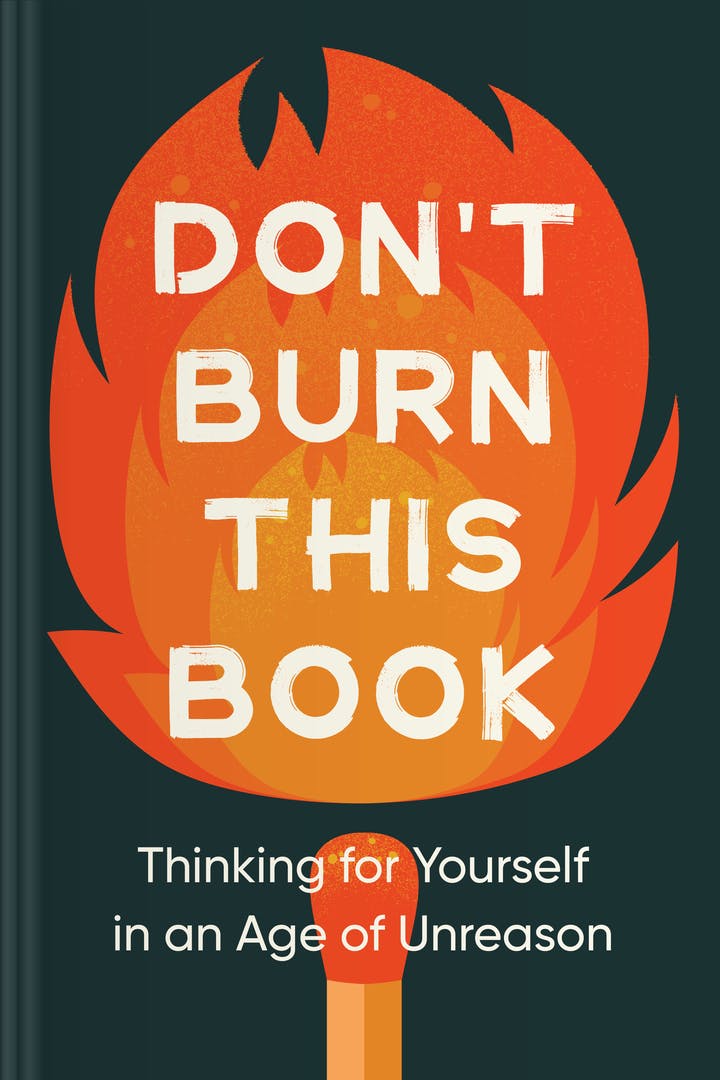 3
3Don’t Burn This Book
by Dave Rubin
What is Don’t Burn This Book about?
In this thought-provoking book, the author challenges readers to embrace critical thinking and individuality in a world plagued by irrationality. With wit and insight, he explores the dangers of groupthink, cancel culture, and political correctness, urging readers to question prevailing narratives and form their own opinions. Through personal anecdotes and compelling arguments, "Don't Burn This Book" serves as a rallying cry for intellectual independence and the preservation of free speech in an increasingly polarized society.
Who should read Don’t Burn This Book
Individuals seeking to challenge prevailing narratives and think critically.
Those interested in understanding the dangers of groupthink and echo chambers.
Readers looking for practical advice on navigating ideological polarization.
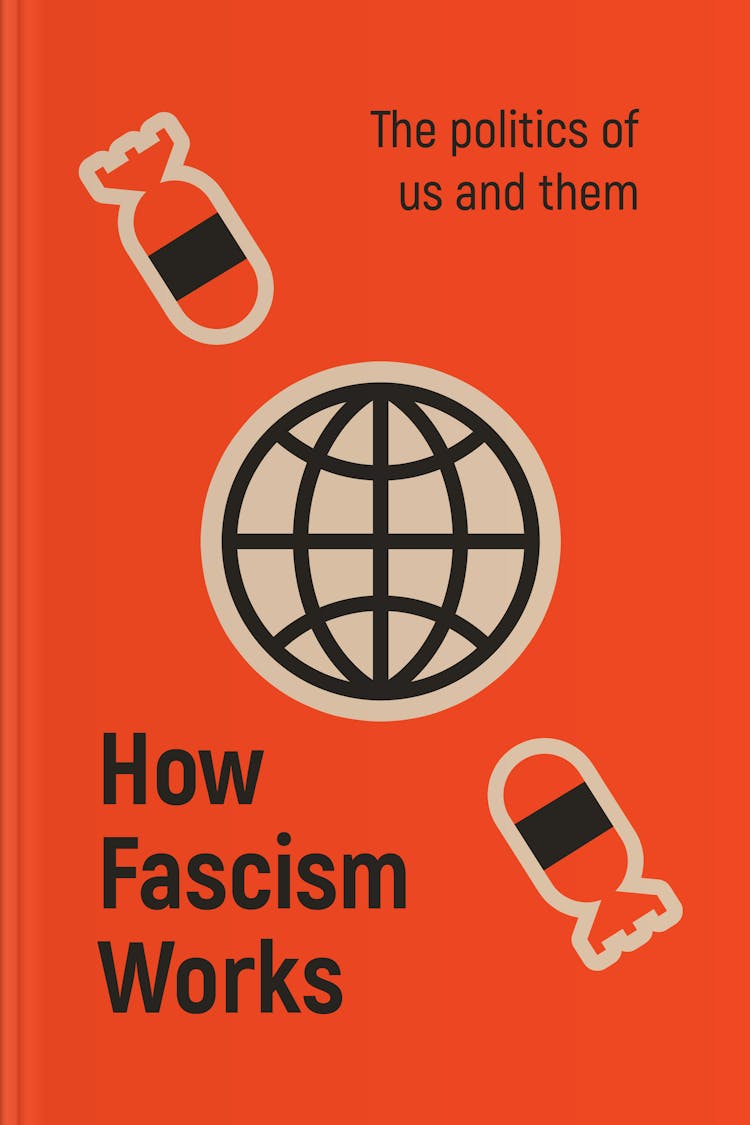 4
4How Fascism Works
by Jason Stanley
What is How Fascism Works about?
In this thought-provoking book, the author delves into the intricate workings of fascism, exploring its underlying principles and tactics. Through a comprehensive analysis, he reveals how fascist ideologies manipulate language, exploit fear, and target vulnerable groups to gain power. Drawing on historical examples and contemporary politics, Stanley offers a compelling examination of the dangerous rise of fascism and its impact on society, urging readers to recognize its signs and actively resist its divisive tactics.
Who should read How Fascism Works
Individuals interested in understanding the historical and contemporary manifestations of fascism.
Political science students seeking a comprehensive analysis of fascist ideologies.
Citizens concerned about the rise of authoritarianism and its implications.
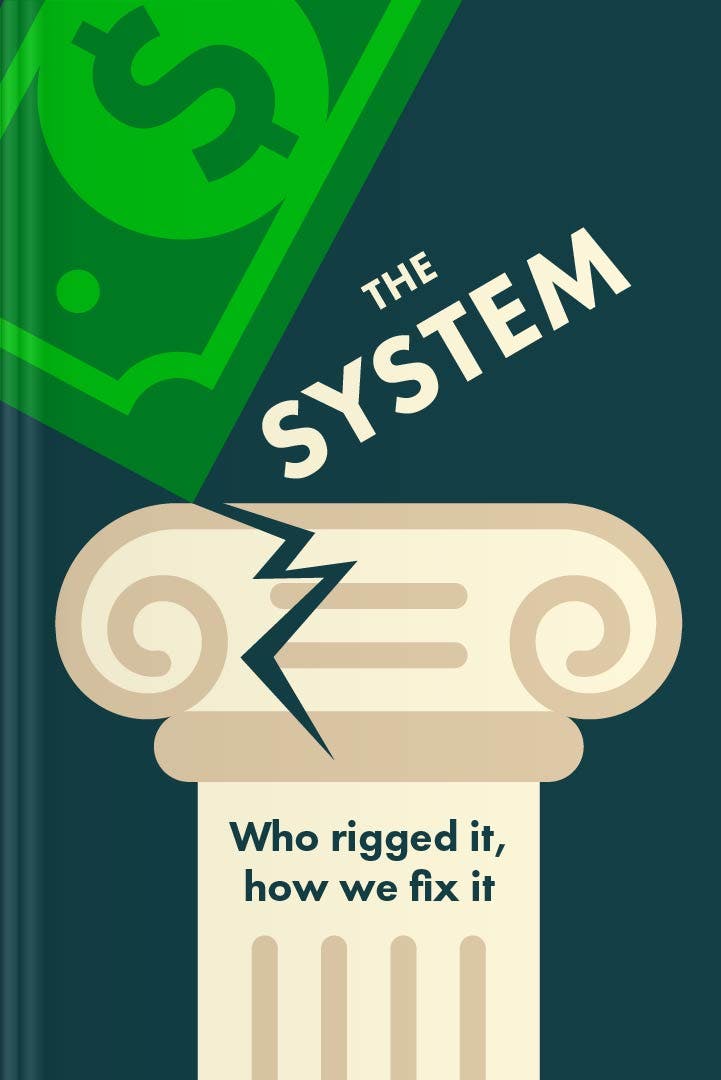 5
5The System
by Robert B. Reich
What is The System about?
"The System" by Robert B. Reich is a thought-provoking book that delves into the intricate workings of our economic and political systems. Through a comprehensive analysis, Reich exposes the hidden forces and individuals responsible for rigging the system in favor of the wealthy and powerful. With compelling arguments and insightful solutions, he offers a blueprint for fixing the system and creating a more equitable society for all.
Who should read The System
Individuals interested in understanding the flaws and solutions of the current economic system.
Policy makers and politicians seeking insights into economic reform.
Anyone concerned about income inequality and social justice issues.
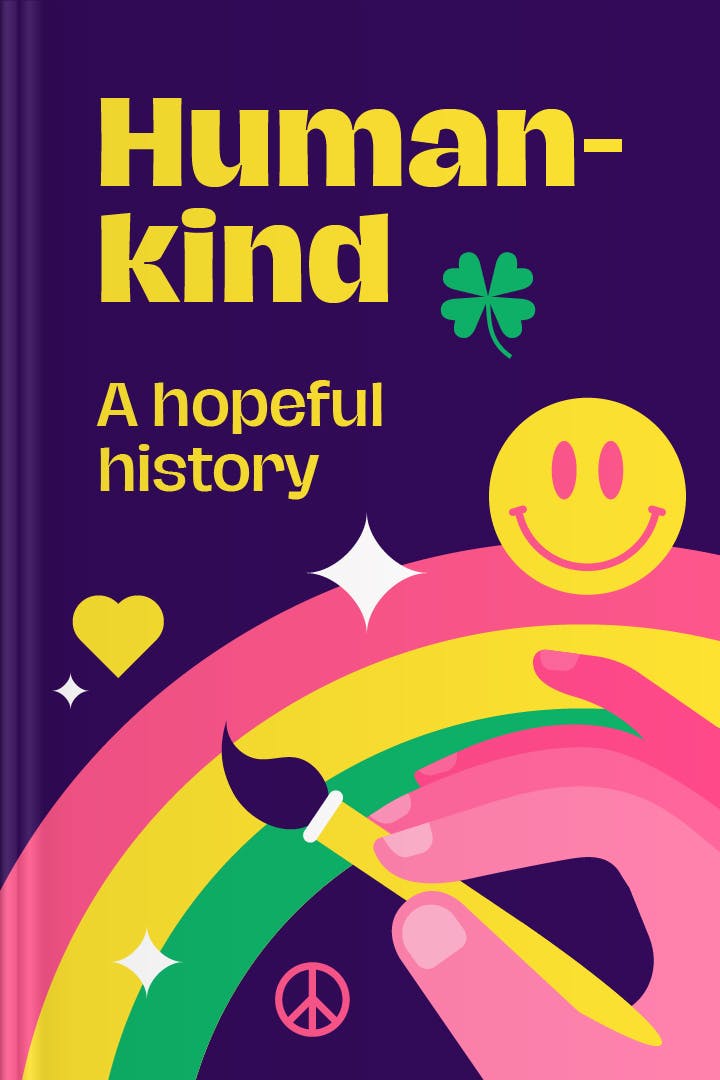 6
6Humankind
by Rutger Bregman
What is Humankind about?
In this thought-provoking book, Rutger Bregman challenges the prevailing belief that humans are inherently selfish and driven by self-interest. Drawing on a wealth of historical evidence and psychological research, he presents a compelling argument that humans are fundamentally good and cooperative beings. Bregman explores how this understanding can reshape our society, offering a hopeful vision for a more compassionate and empathetic future.
Who should read Humankind
Anyone seeking a fresh perspective on human nature and society.
Social scientists and historians interested in reevaluating humanity's potential.
Individuals looking for inspiration and hope in turbulent times.
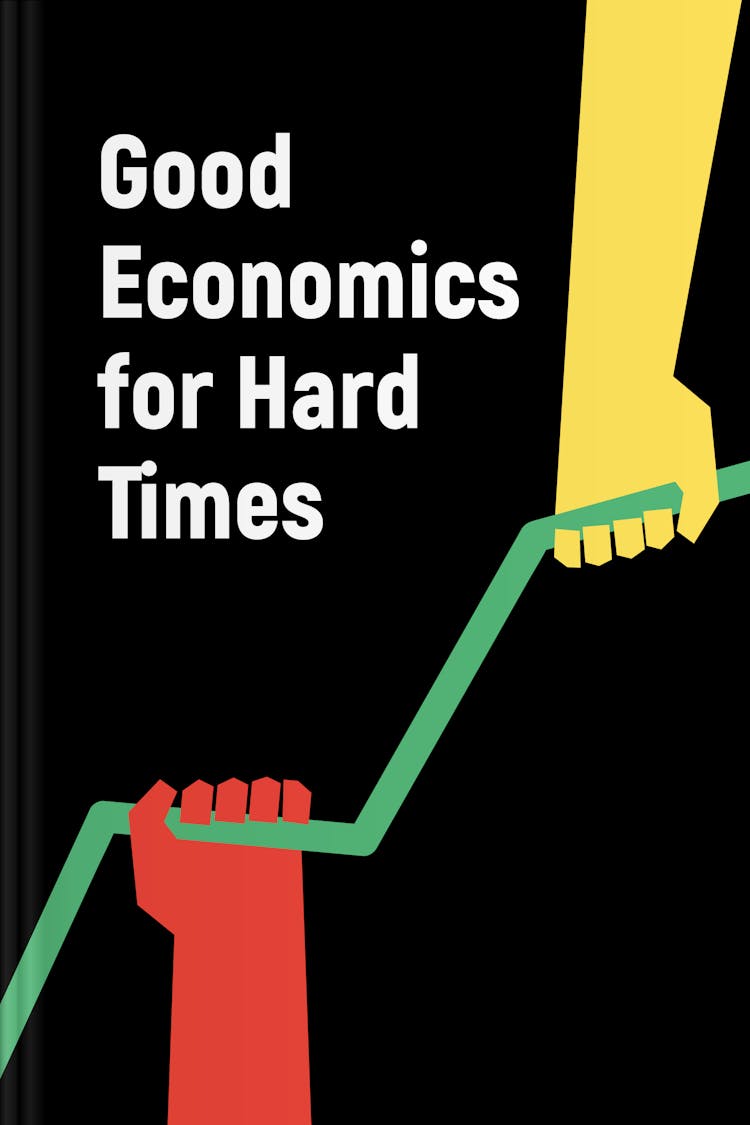 7
7Good Economics for Hard Times
by Abhijit V. Banerjee, Esther Duflo
What is Good Economics for Hard Times about?
"Good Economics for Hard Times" offers a fresh perspective on the pressing issues of our time, such as inequality, immigration, and climate change. Written by two Nobel laureates in economics, this book presents evidence-based solutions to tackle these challenges, debunking common myths and providing practical insights. With a focus on real-world problems and the impact on everyday people, it offers a compelling and accessible analysis of how economics can shape a better future for all.
Who should read Good Economics for Hard Times
Economists and policymakers seeking evidence-based solutions for challenging times.
Individuals interested in understanding the impact of economics on everyday life.
Students and academics studying the intersection of economics and social issues.
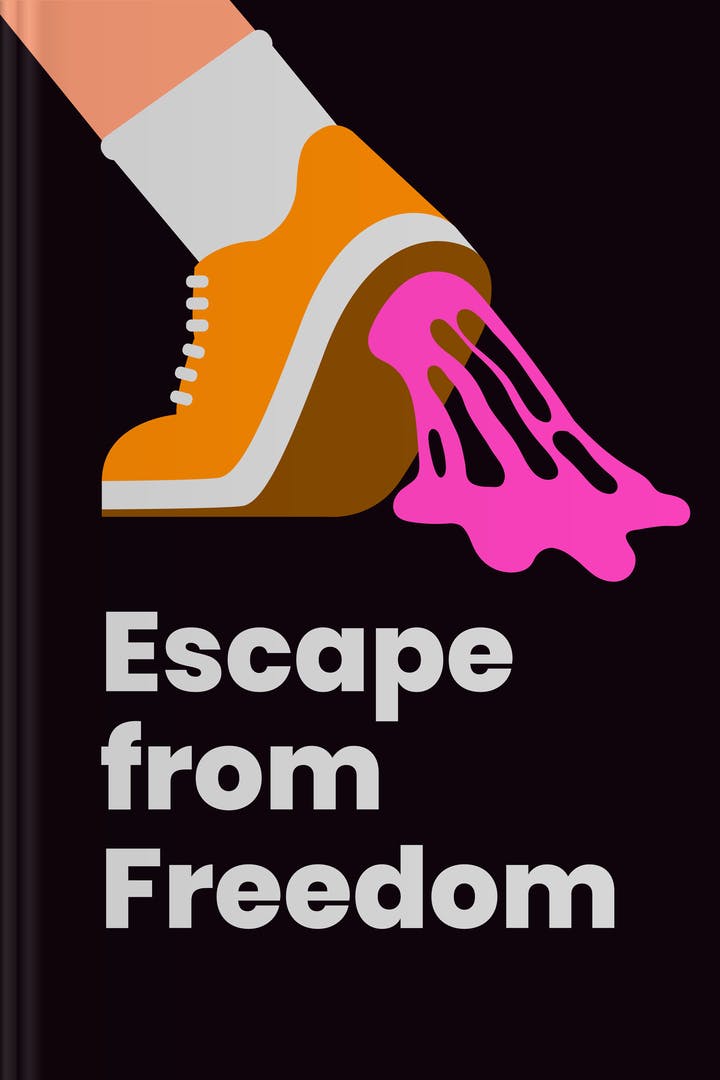 8
8Escape From Freedom
by Erich Fromm
What is Escape From Freedom about?
"Escape From Freedom" explores the psychological and social factors that drive individuals to seek escape from the burdens of freedom. Erich Fromm delves into the human desire for security and conformity, analyzing the impact of societal structures on personal identity and the consequences of relinquishing individual autonomy. Fromm's thought-provoking analysis sheds light on the complexities of human nature and the struggle between the yearning for freedom and the allure of conformity.
Who should read Escape From Freedom
Individuals seeking to understand the psychological roots of authoritarianism.
Psychologists and social scientists interested in studying human behavior.
Those interested in exploring the impact of societal pressures on personal freedom.
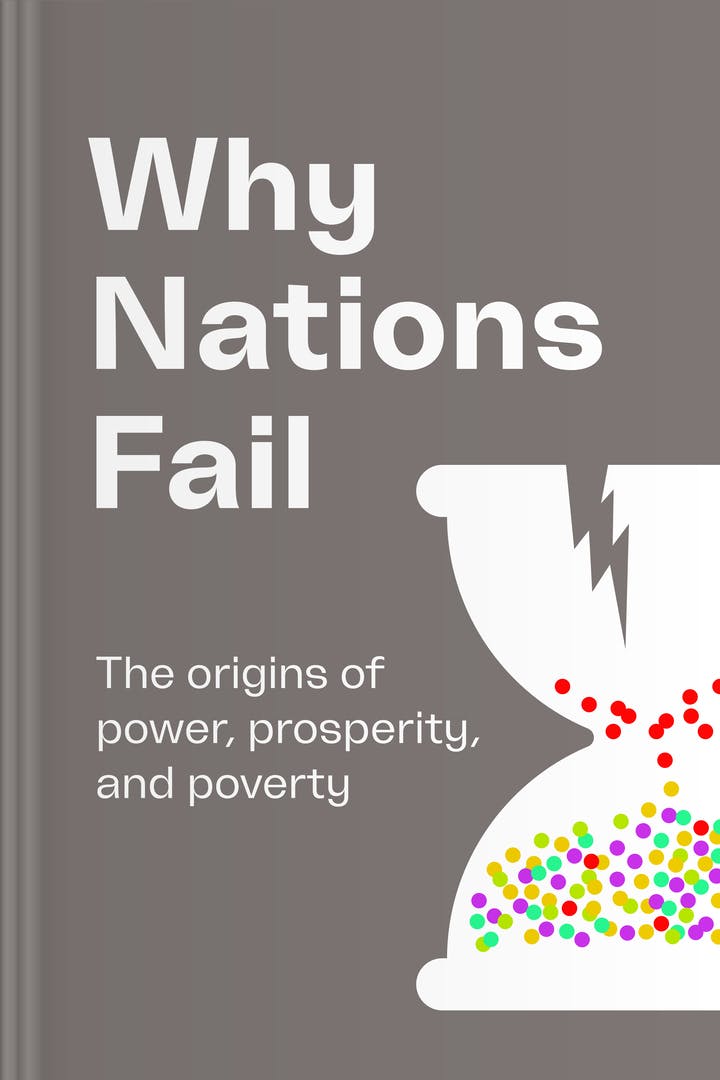 9
9Why Nations Fail
by Daron Acemoglu and James A. Robinson
What is Why Nations Fail about?
"Why Nations Fail" explores the factors that determine the success or failure of nations. Acemoglu and Robinson argue that inclusive political and economic institutions are crucial for long-term prosperity, while extractive institutions lead to poverty and stagnation. Through historical analysis and case studies, the authors examine the origins of power and the impact of institutions on societies, shedding light on the complex dynamics that shape the fate of nations.
Who should read Why Nations Fail
Economists and political scientists interested in understanding the roots of economic inequality.
Policy makers and government officials seeking insights into fostering inclusive growth.
Students and researchers studying the impact of institutions on development.
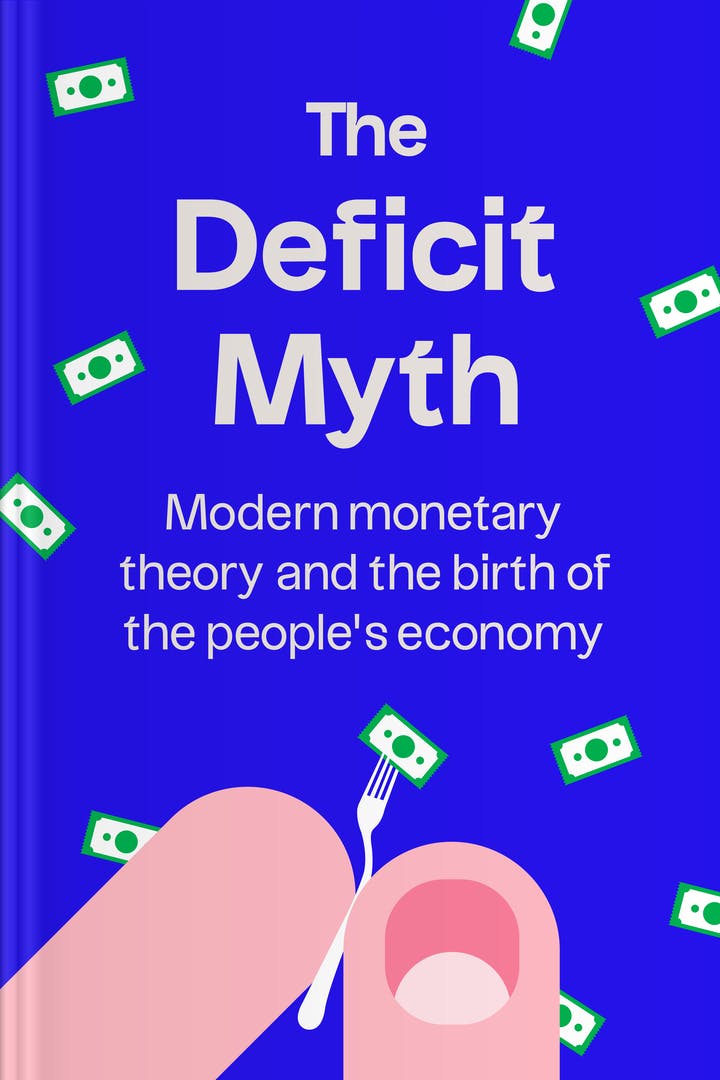 10
10The Deficit Myth
by Stephanie Kelton
What is The Deficit Myth about?
"The Deficit Myth" challenges conventional economic thinking by introducing Modern Monetary Theory (MMT) as a solution to the world's economic problems. Stephanie Kelton, an influential economist, argues that governments have the power to create money and that deficits are not inherently bad. She explores how MMT can be used to create a more equitable and sustainable economy that prioritizes the well-being of the people.
Who should read The Deficit Myth
Economists and policymakers seeking a fresh perspective on monetary theory.
Individuals interested in understanding the impact of government deficits.
Anyone curious about the potential for a new economic paradigm.
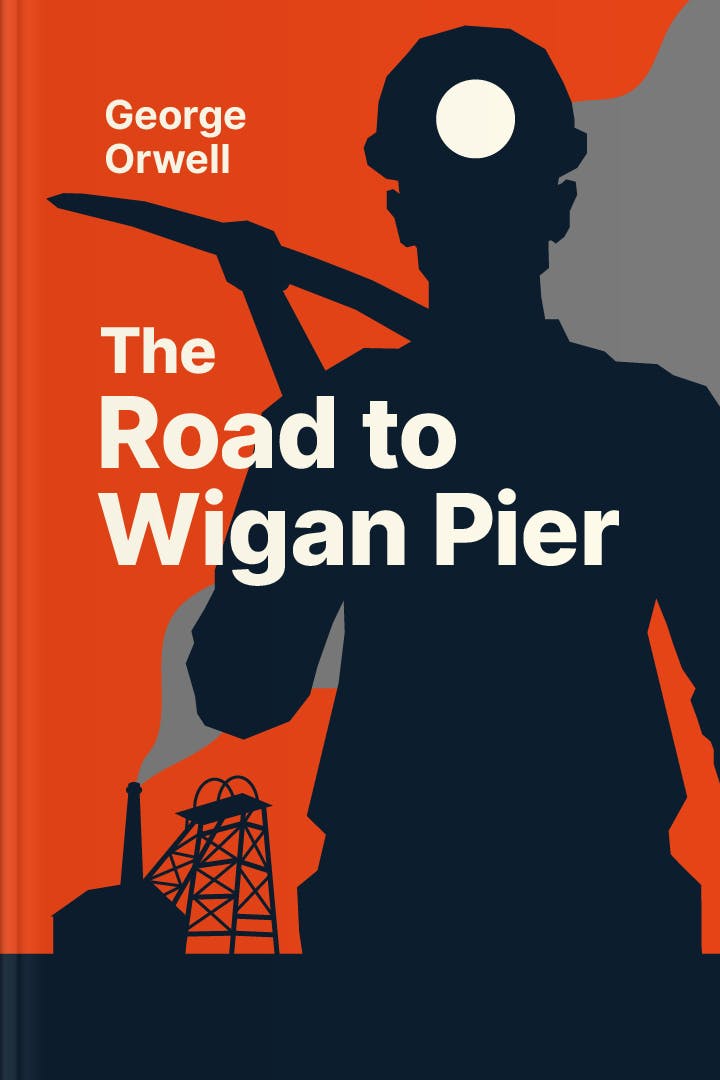 11
11The Road to Wigan Pier
by George Orwell
What is The Road to Wigan Pier about?
"The Road to Wigan Pier" is a powerful and thought-provoking non-fiction book that delves into the harsh realities of working-class life in industrial England during the 1930s. Through vivid descriptions and personal anecdotes, the author exposes the abysmal living conditions, poverty, and social inequality faced by the working class. Orwell's exploration of these issues serves as a call to action, urging society to confront and address the systemic injustices that perpetuate such hardships.
Who should read The Road to Wigan Pier
History enthusiasts interested in the working-class struggles of 1930s Britain.
Social activists seeking insights into poverty and inequality issues.
Fans of George Orwell's literary works and political commentaries.
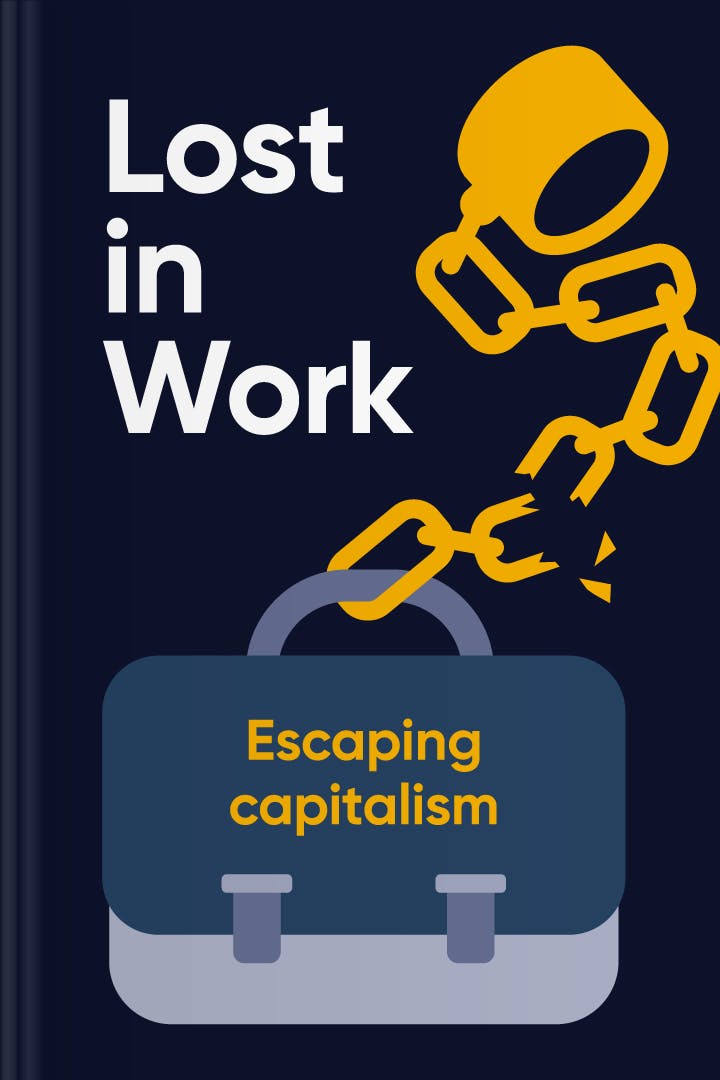 12
12Lost in Work
by Amelia Horgan
What is Lost in Work about?
"Lost in Work: Escaping Capitalism" delves into the intricate web of modern capitalism and its impact on our lives. Amelia Horgan explores the relentless pursuit of work and its consequences on our well-being, relationships, and the environment. With thought-provoking analysis and personal anecdotes, Horgan challenges the notion that work defines our worth, offering a compelling argument for reimagining our relationship with labor and envisioning a more fulfilling and equitable future.
Who should read Lost in Work
Individuals seeking to understand the impact of capitalism on their lives.
Activists and scholars interested in challenging the capitalist system.
Workers looking for insights on reclaiming their time and autonomy.
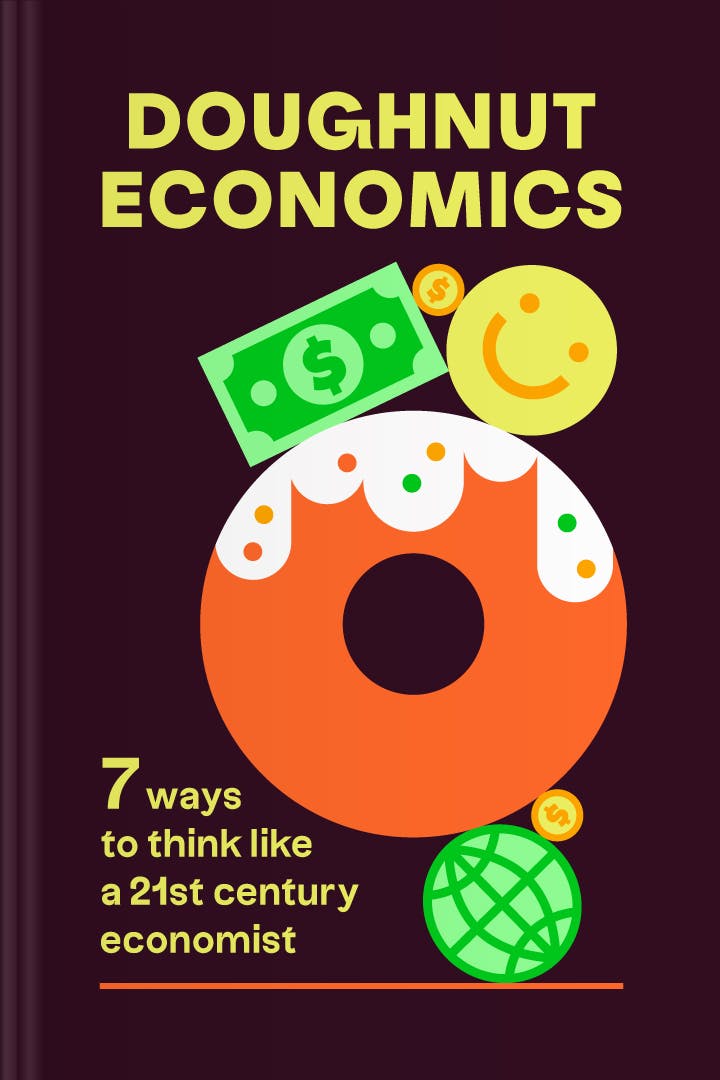 13
13Doughnut Economics
by Kate Raworth
What is Doughnut Economics about?
In this thought-provoking book, the author challenges traditional economic theories and offers a fresh perspective on how we should approach economics in the 21st century. Raworth introduces seven key principles that encourage a more sustainable and inclusive economic system, emphasizing the importance of social justice and environmental sustainability. With engaging examples and insightful analysis, she presents a compelling argument for reimagining economics to create a better future for all.
Who should read Doughnut Economics
Economists and policymakers seeking innovative approaches to address global challenges.
Students and academics interested in rethinking traditional economic theories.
Individuals passionate about sustainable development and creating a fairer society.
